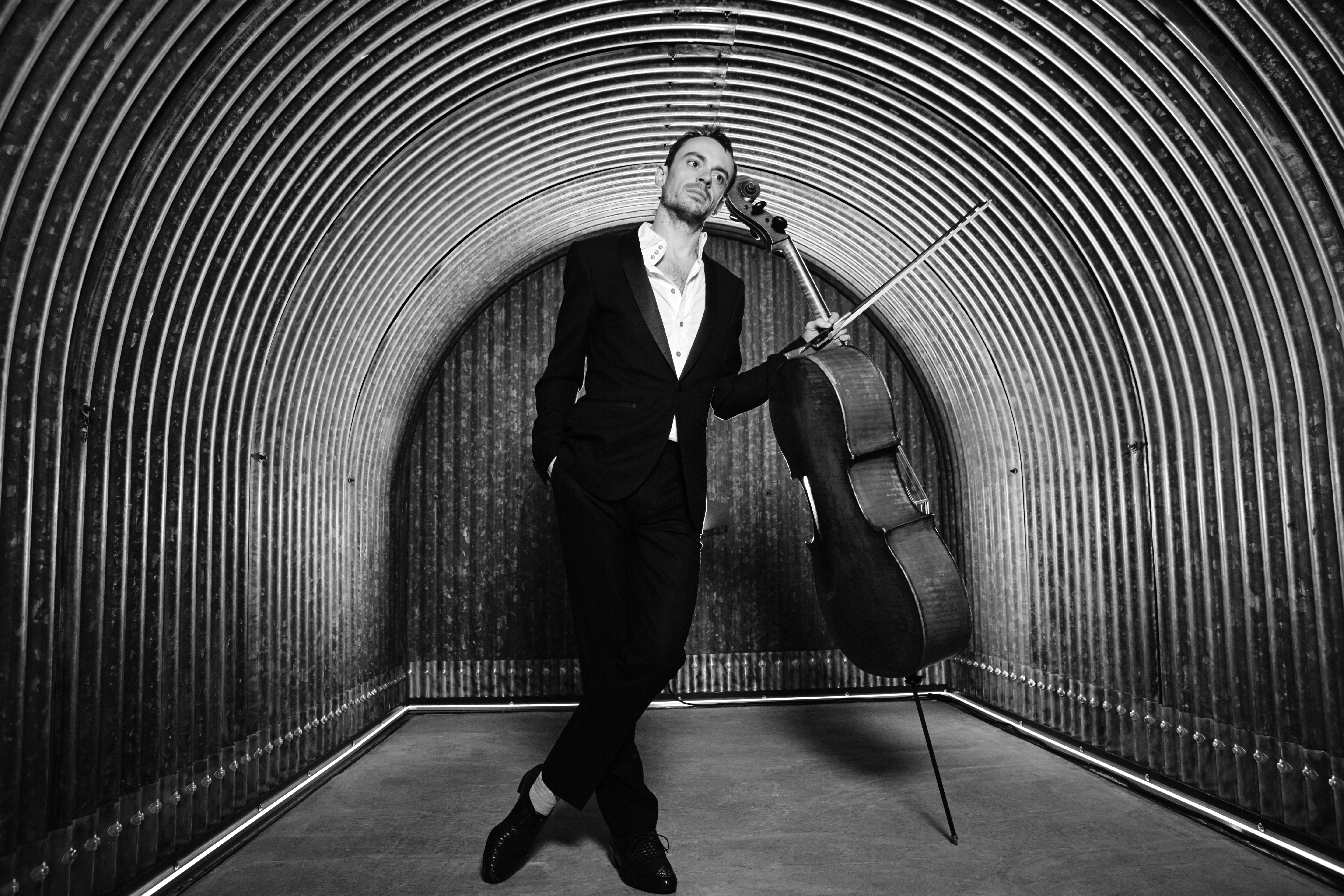Gaspar Claus is a cellist.
That is to say, he plays the cello, and pretty much anything he touches, he touches with his cello. That is to say all he weighs of the world surrounding him, he compares to the weight of his cello, an instrument to be hugged, stroked, pinched but also carried on one’s back along lengthy stretches.
And indeed it is no stretch to also call Gaspar Claus a surveyor. Geographer. Even, why not, a cartographer: drawer of lines and tracery.
For years now, we’ve run into him, often, somewhere within the vigorous and tender frenzy of his encounters, warming his instrument in service of others, or dedicating it to incongruous, largely unexpected dialogues, from pop to contemporary music, from plural traditions to noisy jazz, from chanson to electronic music. We’ve seen him, heard him, glimpsed him, guessed him alongside Rone and Barabara Carlotti, with Matt Elliot and Stranded Horse, Serge Teyssot-Gay and Angélique Ionatos, Joelle Léandre, Marion Cousin, Jim O’Rourke or Peter Von Poehl and Keiji Haino, equally involved, equally curious. From afar we’ve followed him to Japan, Mongolia, Iceland, Mali, Morocco, and from all these places and more, we saw him return enriched, that is to say – lighter.
This taste for potlatch and spontaneous pollination has long been the argument for a lively and hungry personality, transforming a tender form of amused cannibalism into humble availability, and vice versa. It is this same curiosity which sees him patiently running the fine label entitled “Les disques du Festival permanent”, a warm inn whose tables you’ll find full of a plethora of other adventurers: Sourdure, Borja Flames, Marc Melià… Another way for him to undermine any notion of a chapel and challenge hierarchies. It would be a pity, however, for the sole benefit of these admirable qualities as a unifier, to neglect the instrumentalist, the thinker, the composer.
Improvising alone or playing with his father Pedro Soler – a guitarist with a conception of flamenco as a broad form, all at once modern and archaic, instigator of the VACΛRME trio – with the violinists Carla Pallone and Christelle Lassort, or increasingly frolicking around various film scores (Makala, Vif Argent…), Gaspar shows the importance of how his unbridled courtship with all forms of music will have ultimately focused, rather than scattered, his way of playing and his theoretical approach, strengthening an ever more broadening and colourful vocabulary.
Thus, Gaspar Claus is stubbornly intent on reconciling opposites. On outfitting his most strident vituperations with baroque ornaments, or airing out compositions with free improvisation, and on viewing concepts as desirable and sensuous machines. Whether intimately entwined with his instrument or scrawling along a lone sheet of paper, writing for ensembles (six cellos under telepathic mentorship) or imagining great mental celebrations – such as La Nuit en LA, which saw the Paris Philharmonic resonating with a single A note for ten hours straight, under the hypnotized fingers of nine entranced musicians, or drumming his maple body with the wood of his own bow, or shamelessly listening to Eliane Radigue, Pauline Oliveiros or La Monte Young (listening is already playing), whether in solitude or in the warm imprint of long-nurtured friendships, Gaspar Claus asserts himself as a lyrical conceptualist, at turns meditative and explosive, cherishing ideas for their textures and, conversely, matter for how it arouses the imagination, which itself is but a thought.
We look forward to his next tribulations as fakir conductor, for his ardent solo stage recitals, his silver-screen scores and all the upcoming hallucinations which, to be sure, he himself is still unaware of.
Download press photo here (Credit: Jeremie Bouillon)
News
- SHAPE: The Project Has Concluded
- SHAPE+ announces 2024/2025 roster of artists
- SHAPE+ announces 2023/2024 roster of artists
- SHAPE+ platform announces open call for 2023/2024
- Gaspar Claus: ‘My career is like a monster chasing me, instead of me chasing a career.’
